Our Health Library information does not replace the advice of a doctor. Please be advised that this information is made available to assist our patients to learn more about their health. Our providers may not see and/or treat all topics found herein. As we get older, our skin gets thinner and drier, so it is easier to damage. The chance of skin damage is higher for people who can't move much, or who spend most of their time in bed or in a wheelchair. The skin can develop rashes and sores, especially pressure injuries (also called pressure sores). These injuries are caused by constant pressure, which can limit the blood supply to the skin. Skin also can be damaged by sweat, feces, or urine, making pressure injuries more likely and harder to heal. You can help protect the skin of the person you're caring for by checking it every day and by being careful when cleaning it. Check the person's skin every day. It's easiest to do this when you help the person bathe and dress. Let the person know why you're checking the skin. Keep their body covered except for the area you are checking. This will help them stay warm and also may help them feel more comfortable. The most common places for pressure injuries are the back of the head and ears, the shoulders, the elbows, the lower back and buttocks, and the hips. Pressure injuries also can form on the inner knees and the heels. When a pressure injury forms, the skin temperature can be different than nearby skin. It might be warmer or cooler. The skin can also feel either firmer or softer than the rest of the skin. Rashes can develop in folds of skin on the torso, and in the creases of the armpits, elbows, and groin. Rashes can develop in the creases around the knees and ankles and in between the toes. Rashes can also develop around the genitals and anus and in the creases where the legs join the body. As people get older, the skin gets thinner. It's easier for the skin to tear. This means an increased chance of injury, such as pressure injuries. Older adults also can be more sensitive to cold because of thinner skin. Relieving and spreading out pressure is the most important part of both preventing and treating pressure injuries. Putting pressure on one spot for long periods of time damages the skin and underlying tissues. Pressure can be relieved and spread in several ways. Often a combination of these is best. If you or someone you care for is not able to move much, it's important to prevent pressure injuries and to check the skin every day. If you think that a pressure injury is forming, take steps to treat it. Talk to your doctor or nurse about what more you can do. Keeping the person's skin clean and moisturized can help keep their skin healthy. Current as of: December 1, 2025 Author: Ignite Healthwise, LLC Staff Current as of: December 1, 2025 Author: Ignite Healthwise, LLC Staff Clinical Review Board This information does not replace the advice of a doctor. Ignite Healthwise, LLC disclaims any warranty or liability for your use of this information. Your use of this information means that you agree to the Terms of Use and Privacy Policy. Learn how we develop our content. To learn more about Ignite Healthwise, LLC, visit webmdignite.com. © 2024-2025 Ignite Healthwise, LLC.Topic Contents
Caregiving: Skin Care for Immobile Adults
Overview
Checking the skin for problems
Look for pressure injuries, especially around bony areas.
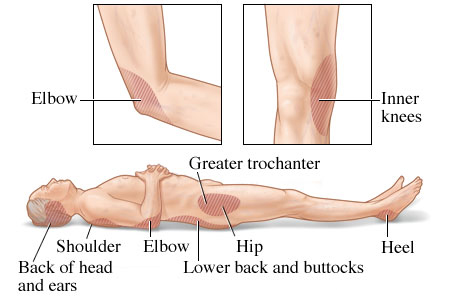
Check for rashes in skin folds and creases.
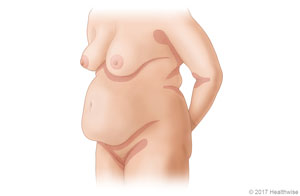
Watch for rashes around the knees, ankles, and toes.
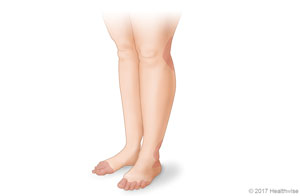
Check for rashes in the groin and anal areas.
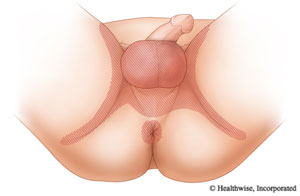
Watch for problems from thinning skin.
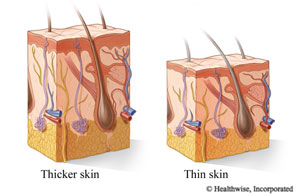
Preventing pressure injuries
What can you do to keep skin healthy?
Related Information
Credits
Clinical Review Board
All Ignite Healthwise, LLC education is reviewed by a team that includes physicians, nurses, advanced practitioners, registered dieticians, and other healthcare professionals.
All Ignite Healthwise, LLC education is reviewed by a team that includes physicians, nurses, advanced practitioners, registered dieticians, and other healthcare professionals.
Our Health Library information does not replace the advice of a doctor. Please be advised that this information is made available to assist our patients to learn more about their health. Our providers may not see and/or treat all topics found herein. Current as of: December 1, 2025 Author: Ignite Healthwise, LLC Staff Clinical Review BoardCaregiving: Skin Care for Immobile Adults
All Ignite Healthwise, LLC education is reviewed by a team that includes physicians, nurses, advanced practitioners, registered dieticians, and other healthcare professionals.



